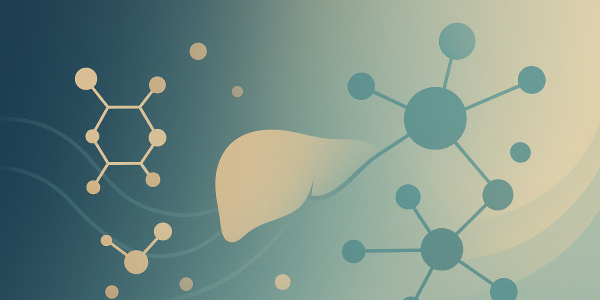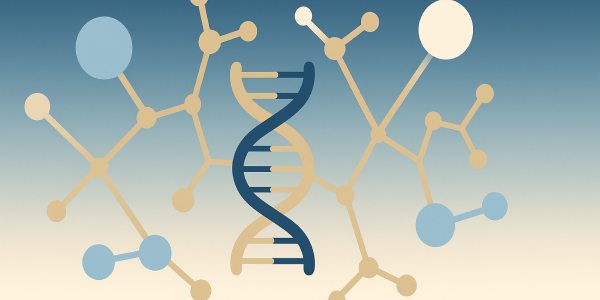Guide to Genetic Testing: What You're Really Buying


Let's talk about something that might save you hundreds of dollars and a lot of disappointment: not all genetic tests are created equal.
You've probably seen the ads. "Unlock your genetic secrets!" "Discover your perfect diet!" "Find out what supplements you need!" or whatever the latest buzzworthy genetic hook is. But here's what those glossy marketing campaigns won't tell you, the genetic test market is like the Wild West, with everything from comprehensive medical-grade analysis to tests that check a handful of genes just to sell you vitamins.
So before you spit in that tube or swab that cheek, let's dive into what you're actually getting for your money.
The Three Types of Tests You'll Encounter
1. Whole Genome Sequencing (WGS): The Ferrari of Genetic Testing
Imagine having someone read your entire genetic instruction manual, letter by letter, cover to cover, and then doing it 30 times just to make sure they got it right. That's whole genome sequencing (WGS).
This isn't just checking the highlights; it's reading all 3 billion base pairs of your DNA, including the often-overlooked mitochondrial DNA (yes, those powerhouse-of-the-cell mitochondria have their own genetic code).
Why it's amazing:
- You get absolutely everything. No stone unturned, no variant missed.
- It's a one-and-done deal. Your DNA doesn't change, so this comprehensive read lasts a lifetime.
- Future proof investment. As scientists discover new genetic connections, you can reanalyze your existing data without retesting.
Why you might hesitate:
- The price tag hurts, typically $1,000 or more.
- It takes time. This isn't instant gratification genetic testing.
- Information overload is real. You'll get more data than you'll probably ever use (though some people love that).
Perfect for: Data enthusiasts, athlete, executive or people with complex health mysteries, or anyone who wants the absolute most comprehensive picture and doesn't mind paying for it.
2. Wide-Spectrum SNP Testing: The Sweet Spot
Think of this as the "greatest hits" album of your genome. Instead of reading every single letter, these tests focus on hundreds of thousands of specific spots (SNPs) that scientists have identified as important for health and traits.
The Illumina Global Screening Array (GSA Array), which tests about 650,000 sites, is like the industry standard here. It's what many companies (including Halo) use because it hits that magical balance between "thorough enough to be useful" and "affordable enough to be accessible."
Why it works:
- Covers all the important, well-researched genetic variants that actually impact your health.
- Significantly cheaper than whole genome sequencing.
- Faster turnaround, you're not waiting months for results.
The trade-offs:
- You might miss rare variants (but honestly, most of us don't have them).
- Some cutting-edge polygenic risk scores might be less accurate without full coverage.
Perfect for: Most people. Seriously. If you want actionable health insights without breaking the bank, this is your goldilocks option.
3. Targeted Panels: The Boutique Tests
These are the minimalists of genetic testing, they look at just a handful of specific genes. You've probably seen these advertised heavily on social media, often with a conveniently timed pitch for personalized supplements.
The classic example? MTHFR testing or DNA methylation panels, which examine one or several genes involved in processing B vitamins. These typically use basic technologies like PCR (polymerase chain reaction) or low-density arrays that can check specific known variants quickly and cheaply. Important genes? Sure. The whole story? Not even close.
The appeal:
- Budget friendly (sometimes under $100).
- Laser focused on specific concerns.
- Quick and simple results.
The reality check:
- It's like judging a book by reading one paragraph.
- Often used as a gateway to sell you stuff you might not need.
- Can lead to tunnel vision about your health.
Perfect for: Someone with a very specific question or an extremely tight budget who understands they're only seeing a tiny piece of the puzzle.
How to Choose Without Getting Played
Here's your decision tree:
Have the financial means and/or love data? → Whole genome sequencing. Go big, get everything, never look back.
Want comprehensive health insights on a reasonable budget? → Wide-spectrum SNP test. This is the smart money choice for most people.
Just curious about one specific thing? → Targeted test, but keep your expectations in check and your credit card in your wallet when the supplement recommendations start rolling in.
The Bottom Line
Here's what I wish everyone understood about genetic testing:
Your DNA is permanent hardware—you only need to test it comprehensively once in your lifetime (unless you're planning some DIY CRISPR experiments, which... please don't).
Even a basic test can provide valuable insights if you know how to use them. But—and this is crucial—the real value isn't in the test itself. It's in understanding what to do with the information.
A comprehensive test without proper interpretation is like having a Ferrari without knowing how to drive. Conversely, even a simple test with expert guidance can transform your health approach.
Before You Click "Buy"
Ask yourself:
- What do I actually want to learn?
- How much detail do I need?
- Who's going to help me understand and act on these results?
The genetic testing industry wants you to think you need their specific test, their proprietary algorithm, their special supplements. But the truth is simpler: choose a test that matches your goals and budget, then focus on finding someone who can help you turn that data into action.
Your genes are just the starting point. What matters is what you do with the information. Choose wisely, but don't get paralyzed by the choices. Even basic genetic insights, properly applied, can be transformative.
And remember, those Instagram ads promising to unlock all your genetic secrets with a $49 test? They're probably unlocking more about your wallet than your wellness.











.svg)